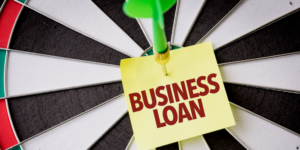When you set up a new business, you will likely have to spend money on certain goods and services before you are ready to trade. These startup costs, which include things such as stock and equipment, are known as pre-trading expenses.
You can usually claim tax relief on this type of business-related expenditure once you start trading, thus enabling you to reduce the amount of tax you owe at the end of your first year.
In this guide, we explain what pre-trading expenses are, which costs you are able to claim, and how to apply for tax relief on these expenses when your business is up and running.
What are pre-trading expenses?
Pre-trading expenses are simply business-related costs that you incur whilst setting up a business and getting ready to trade. Most small business owners, including limited company directors, pay these startup costs with their own money.
The good news is that you claim tax relief on any pre-trading expenses you incur “wholly and exclusively for the purposes of the trade, profession, or vocation.”
Whilst a lot of pre-trading expenditure takes place shortly before business operations begin, you can backdate claims up to seven years prior to the date on which you start trading.
These expenses are treated as having occurred on the first day of trading, allowing you to deduct startup costs from business profits and reduce your Corporation Tax bill.
The types of pre-trading expenses you can offset against your tax bill include:
- Legal and accountancy fees
- Cost of leasing or purchasing business premises
- Registered office and business address services
- Stock, equipment, and other business supplies
- Logo design and website design
- Domain names and web hosting services
- Business travel
- Marketing and advertising costs
- Business insurance
- Stationery, printing, and postage
- Phone bills
- Recruiting staff
- Uniforms and trade-specific protective clothing
HMRC will class any such business-related costs as legitimate pre-trading expenses, provided these costs would have been tax-deductible if they were incurred after the business was up and running.
Pre-trading expenses you cannot claim
Some startup costs do not qualify as pre-trading expenses for tax purposes, including:
- Cost of company formation
- Training courses
- Business licences
- Substantial repairs and improvements to business premises
- Maintenance costs
- Professional fines and penalties
- Business entertainment
HMRC classes these types of costs as either capital expenditures or revenue expenditures.
Capital expenditures are fixed assets that a business uses to generate revenue over a long period of time. Revenue expenditures relate to short-term, recurring costs incurred during day-to-day operations.
Whilst the company formation fee does not qualify as a pre-trading expense, you can reclaim the cost from the company as a director’s expense.
Reclaiming VAT on pre-trade expenditure
If you register your company for VAT, you can reclaim the VAT incurred on any goods bought for business purposes up to four years before the date of VAT registration, provided you still have the goods to hand.
You can also reclaim VAT paid on business-related services received up to six months before the VAT registration date.
If there is an element of private usage attached to any of these goods or services, you are only entitled to recover the percentage of VAT that corresponds with the percentage of business use.
When does a business officially start trading?
The general rule is that a business officially starts trading when:
- It is in a position to supply (sell) the goods or services that it has been set up to provide (e.g. trading stock or raw materials have been purchased); and
- It offers or starts to provide those goods or services to customers
In many cases, it will be fairly obvious. For example, the date you open the doors to your restaurant or shop, or the date you launch your e-commerce store.
However, most limited companies use the date of incorporation as the date they start ‘trading’ for tax purposes, even if the business is not yet ready to engage in its planned economic activity.
That being said, you may have the option to make your company dormant, if there is likely to be a significant amount of time between the date of company formation and when you start supplying your goods or services.
How to claim pre-trading expenses for your limited company
You can claim pre-trading expenses when you file your first Company Tax Return with HMRC at the end of your accounting period for Corporation Tax. To do so, you need to deduct the expenses from the company’s total turnover.
However, you must keep receipts and accurate records to support your claims, and demonstrate that all expenditure was incurred wholly and exclusively for business purposes.
You must ensure that these startup costs are paid from your personal funds, rather than through a business bank account. Additionally, these purchases should not be made in the company name before it is incorporated (set up) at Companies House.
When you do start trading through your company, you will be entitled to reimbursement of the personal funds you used to cover the cost of pre-trade expenditure. The amount of money you are due should be recorded as a ‘credit’ in a director’s loan account.
Thereafter, you can withdraw this money from the business tax-free, as and when the company has sufficient funds available.
Wrapping up
Claiming expenses through a limited company can be complex and confusing, even more so when you add pre-trading expenses to the mix.
We recommend seeking specialist help and guidance from an accountant to avoid complications, and to ensure all tax-relief claims are legitimate and accurate.
If you have any questions about this post or need help setting up a company, please leave a comment below or get in touch with our company formation team.
Please note that the information provided in this article is for general informational purposes only and does not constitute legal, tax, or professional advice. While our aim is that the content is accurate and up to date, it should not be relied upon as a substitute for tailored advice from qualified professionals. We strongly recommend that you seek independent legal and tax advice specific to your circumstances before acting on any information contained in this article. We accept no responsibility or liability for any loss or damage that may result from your reliance on the information provided in this article. Use of the information contained in this article is entirely at your own risk.









Join The Discussion
Comments (6)
Am I able to purchase a “works” van before I start trading and then claim as an expense after starting trading?
I ask as most vans incur VAT at purchase.
Many thanks.
Thank you for your kind comment, Michael.
Unfortunately as we are not regulated to provide accountancy advice, we are unable to provide advice on specific scenarios. We would recommend contacting an accountant for further assistance.
Please accept our apologies for any inconvenience caused.
Kind regards,
The 1st Formations Team
Thank you for this, really helpful information
We’re pleased this was useful to you Pam.
Kind regards,
The 1st Formations Team
Oh cool! I’m going to claim back my address services and my domain name, now I can use the money for developing my company more!
That’s great to hear Scarlett, we know that a lot of people are unaware of this tax relief.
Kind regards,
The 1st Formations Team